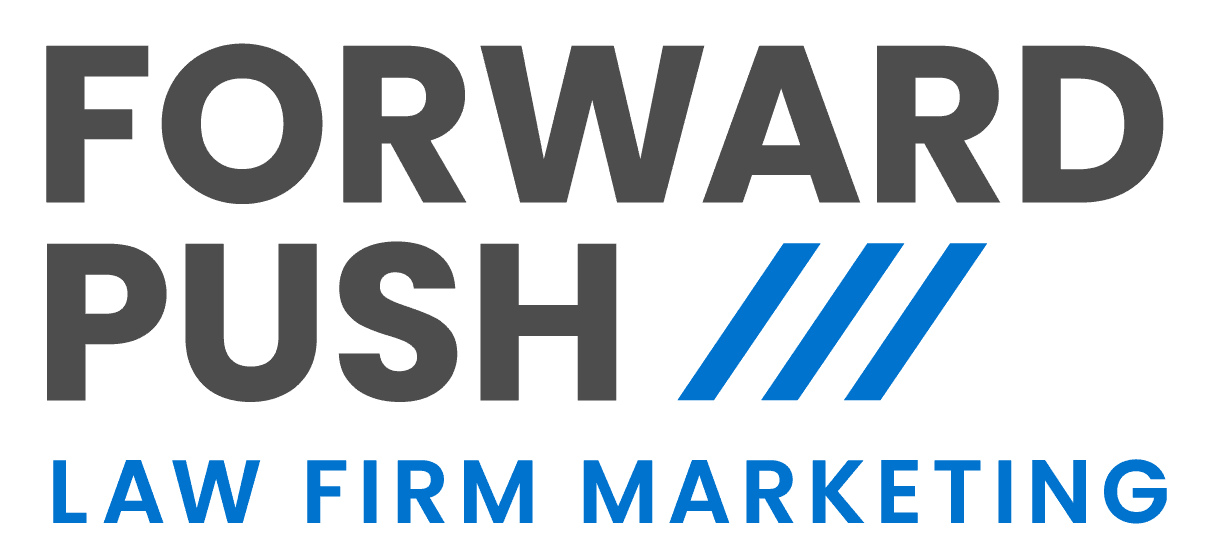By Marc Apple ● ● 5 min read

Table of Contents
TL:DR Search engine optimization (SEO) is a free strategy that increases organic traffic, while paid search involves paying to make your website more visible in search engines. Both have their place in your law firm’s marketing strategy.
No time to read? Listen to a conversation about this blog post instead.
Which Marketing Strategy Works Best for Lawyers?
Even highly skilled lawyers can’t always rely on their expertise and word of mouth alone to bring in new clients. Search engine optimization (SEO) and paid search are two proven tactics for driving traffic, but is one better than the other for law firms?
The good news is that both can be very effective when done right. Let’s explore what the differences are between SEO and paid search as well as the pros and cons of each for law firms.
What Are SEO and Paid Search?
SEO and paid search are two techniques your law firm can use to drive traffic to your websites, rank pages more highly in the search results, and ultimately, get more business.
The main difference is that SEO involves free strategies, while paid search ads cost money.
Search Engine Optimization
SEO involves optimizing your website to help it rank more highly in organic search results. This means that when people search for “employment lawyer near me,” they’ll see your website near the top of search results, improving the chances of them hiring you. With a better ranking generally comes more traffic, and along with it, more clients.
SEO includes on-page, off-page, and technical optimization. On-page SEO refers to factors such as keyword targeting, content readability, and page headings, while off-page SEO includes strategies like writing guest blog posts and posting on social media.

Technical SEO refers to elements such as image optimization, crawlability, and site speed.
Paid Search
There are several varieties of paid search, one of the most common of which is pay-per-click (PPC) ads. Google is the most popular platform on which to advertise, but law firms can place PPC ads on other platforms, such as Facebook, too.
Google Ads offers a search ad that positions your law firm’s website at the top of search results for related keywords. This strategy immediately boosts your visibility in search engines.
PPC ads are appealing because you only have to pay when a user clicks your ad. This metric is called cost-per-click (CPC), and it’s one of many metrics that factor into return on investment (ROI).
Local Service Ads (LSAs) are another option. They are similar to PPC ads, except lawyers pay per lead instead of per click.
They position your law firm in Google’s list of recommended businesses, which appears at the top of search results when users in your area search for your type of law firm.
Which Strategy Works Best?
SEO vs. paid search: Which should lawyers choose? Both should have a place in marketing for an employment lawyer. However, you will need to decide how much time and money you want to spend on SEO and paid search.

Below, find the pros and cons of each strategy to help you decide which to focus on first.
Below, find the pros and cons of each strategy to help you decide which to focus on first.
Pros and Cons of SEO
SEO pros include:
- Organic traffic: SEO is appealing because it can give your law firm more organic traffic (visitors who find a website naturally in the search results instead of via an ad).
- Typically low cost: SEO can cost very little compared to paid search ads.
- Improves trust: Users who come to a law firm’s site organically tend to trust it more and view it as an authority.
- Ability to target specific niches: SEO can help your law firm rank for very specific niches by using keywords such as “workplace discrimination attorney” and “medical malpractice lawyer.”
- Sustainable: Your law firm’s optimization efforts can continue to bear fruit even if you choose to take a break from SEO. Traffic won’t immediately dry up like it would upon stopping PPC ads.
SEO does have some drawbacks lawyers should watch out for:
- Can take a long time: It can take several months of SEO before you start to see results. If targeting very competitive keywords, it may take over a year.
- Requires technical knowledge: SEO is a fluid strategy that requires careful attention to trends and emerging strategies to fully master.
- High competition: The legal industry is a competitive one, both in the real world and online. You must engage in SEO aggressively to outrank your competition.
- Algorithm updates: Google can (and does) change its search algorithms frequently, which means an SEO technique that once worked well may fall out of favor overnight. Staying on top of algorithm changes can be very time-consuming.
- Google prioritizes ads: Because Google prioritizes its paid ads, they’ll always show up at the top of the search results above organic results.

When evaluating SEO vs. paid search, you should also consider the pros and cons of paid strategies.
Pros and Cons of Paid Search
Pros of paid search include:
- Instant results: Because paid ads show up at the top of the page on Google and other platforms, your law firm will typically see results very quickly.
- Measurable return on investment: PPC platforms provide you with a wealth of metrics to help you determine whether you’re getting a good ROI.
- Highly targeted: You can create PPC ads that are highly targeted to attract specific types of clients. Users who click these ads are likely to be interested in your law firm’s services.
- Budget control: There is no set amount that you must spend on paid search. You are in control of the monthly budget and cost per click.
Drawbacks of paid search include:
- Cost: This is probably the biggest drawback of PPC ads. Because the legal landscape is so competitive, it can cost hundreds of dollars per click for just one ad.
- Short-term results: Once your law firm stops paying for clicks, traffic can dry up immediately.
- Requires expertise: Paid search is not ideal for beginners. It involves a variety of skills and expertise to run a PPC campaign — skills and expertise that most lawyers don’t have.
Forward Push Law Firm Marketing Helps Law Firms Take Their Marketing to the Next Level
Forward Push Law Firm Marketing is dedicated exclusively to lawyers. We offer proven SEO and paid search services. To learn more about SEO vs. paid search or the importance of locations for SEO, schedule a strategy call today.




